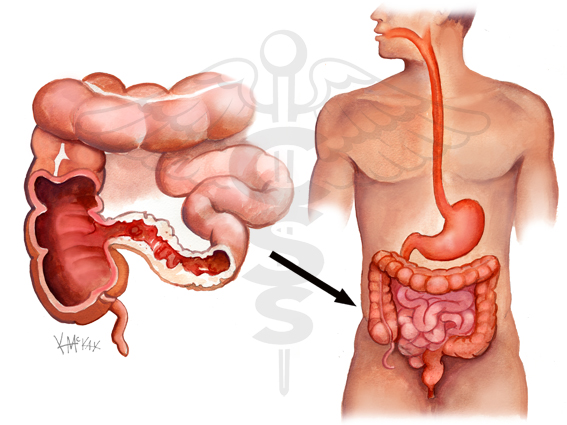Because of the speed with which food passes through the intestines of someone with Crohn’s disease and the mal-absorption due to inflammation, malnutrition is a very real problem for Crohn’s patients. The following is a list of vitamins and minerals believed to be beneficial to those who suffer from any inflammatory bowel disease, but Crohn’s in particular:
- Vitamin D – Probably the most important supplement for sufferers of intestinal disorders, Vitamin D helps the intestines absorb calcium, magnesium, and various other minerals necessary for the body to function normally.
- Calcium – This mineral is crucial for maintaining strong bones as well as for aiding in muscle contraction and nerve conduction.
- Vitamin B Complex – This set of vitamins keep so many things healthy. Most important for the elderly, as it is believed to protect against Alzheimer’s disease, it also benefits most of the body. Think:
- Hair
- Eyes
- Skin
- Liver
- Gastrointestinal Tract
- Nervous System
- Brain Function
- Potassium – As the body moves through its day, it uses up various electrolytes. Potassium helps stabilize those electrolytes to make sure that there are the right amounts of each one in the body at all times.
- Vitamin B12 (Cobalamine) – This vitamin helps prevent anemia, a constant worry for those who may not be aware of how much they’re bleeding internally during a flare-up.
- Magnesium – Once thought to be a minor player in the body’s health, magnesium is now known to be considerably more important. It is essential for nearly every system in the body to work well, and as well as for over 300 enzymatic reactions.
- Bioflavonoids (Vitamin P) – Found in the natural pigment of most fruits and vegetables, this vitamin has only recently been noticed for the work it does to maintain a strong heart and circulation system. A good circulation system helps in the healing process, a necessity to those with internal ulcers.
- Iron – A building block in the hemoglobin, this mineral will also offer a level of protection against anemia. Because it’s involved in the entire process, iron is a necessary component for maintaining a healthy respiratory system.
- Vitamin C (Ascorbic Acid) – Like Bioflavonoids, Vitamin C is crucial in keeping all parts of the body healthy and whole. Specifically, it helps to produce antibodies, and reduces the duration and severity of viruses.
- Zinc – Required for the production of the basic building blocks of the body – RNA and DNA – Zinc is used in the making of over 200 enzymes. It is also necessary to sustain a normally working nervous system and metabolizes calories.
- Vitamin A & Carotenoids – Antioxidants, these vitamins improve immunities, protects against cancer, infections, and prevents eye problems.
- Selenium – Though only a small amount of this mineral is required of the body, Selenium is no less vital to its proper performance. A powerful antioxidant, it also lessens platelet aggregation, allowing for blood to clot normally. This mineral also helps metabolize calcium, Vitamin C, and blood sugar.
This list is long, but it is by no means exhaustive. Other vitamins and minerals play important roles in day to day living, and only a licensed dietician can help in determining the best course for each patient.


